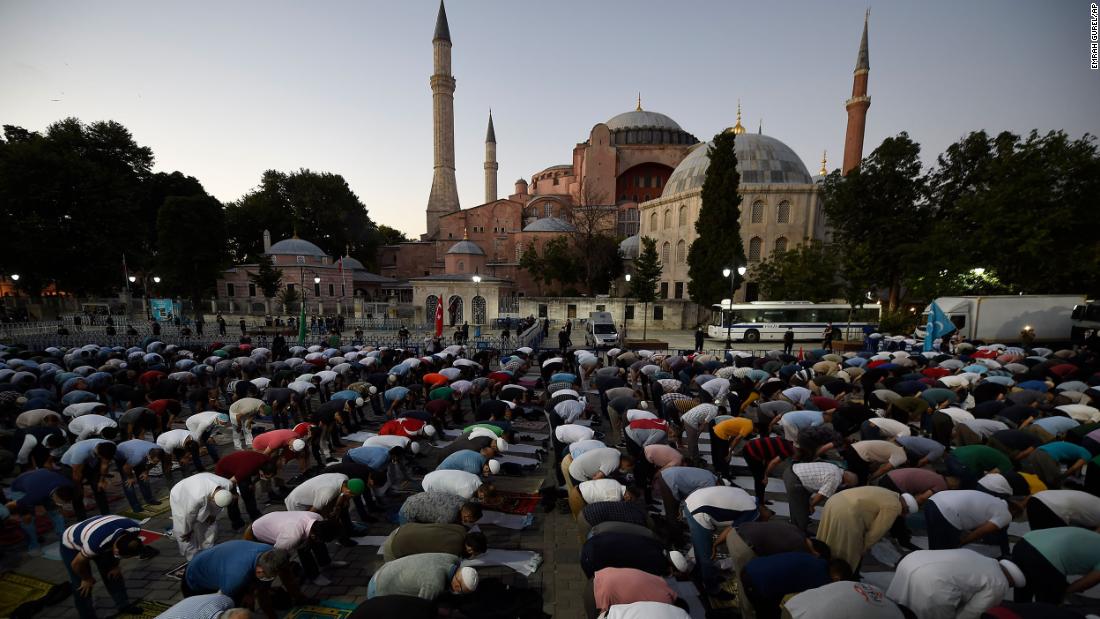
“The sea takes my thinking a little bit far, to Istanbul,” said the pontiff during the prayer, which commemorated the people who work at sea.
Since a cabinet decree in 1934, the iconic building in Istanbul has served as a museum, but on Friday Turkish President Recep Tayyip Erdogan issued a presidential decree to transfer the administration of the Ministry of Culture building to the Presidency of Religious Affairs .
The order follows an earlier ruling by a Turkish court that overturned the decades-long cabinet decree.
“Hagia Sophia is an architectural masterpiece and a unique testament to the interactions between Europe and Asia over the centuries,” said Director General Audrey Azoulay.
“Its status as a museum reflects the universal nature of its heritage and makes it a powerful symbol for dialogue.”
Greece and France have also questioned Turkey’s secularism.
The history of the iconic building dates back to the Byzantine Empire in the 6th century, when it was built as a cathedral. In the 15th century, it was converted into a mosque.
Since Islam prohibits displaying images of people in mosques, authorities plan to use lights and curtains to cover the numerous Byzantine Christian mosaics in Hagia Sophia, Turkey’s chief of religious affairs Ali Erbaş said on Turkish television on Sunday.
“Like all our mosques, its doors will be open to everyone, Muslim or non-Muslim,” said Erdoğan.
“As a common heritage of the world, Hagia Sophia, with her new status, will continue to embrace everyone in a more sincere way.”
CNN’s Sharif Paget, Murat Baykara, Isil Sariyuce, Livia Borghese and Zahid Mahmood contributed to this report.
.